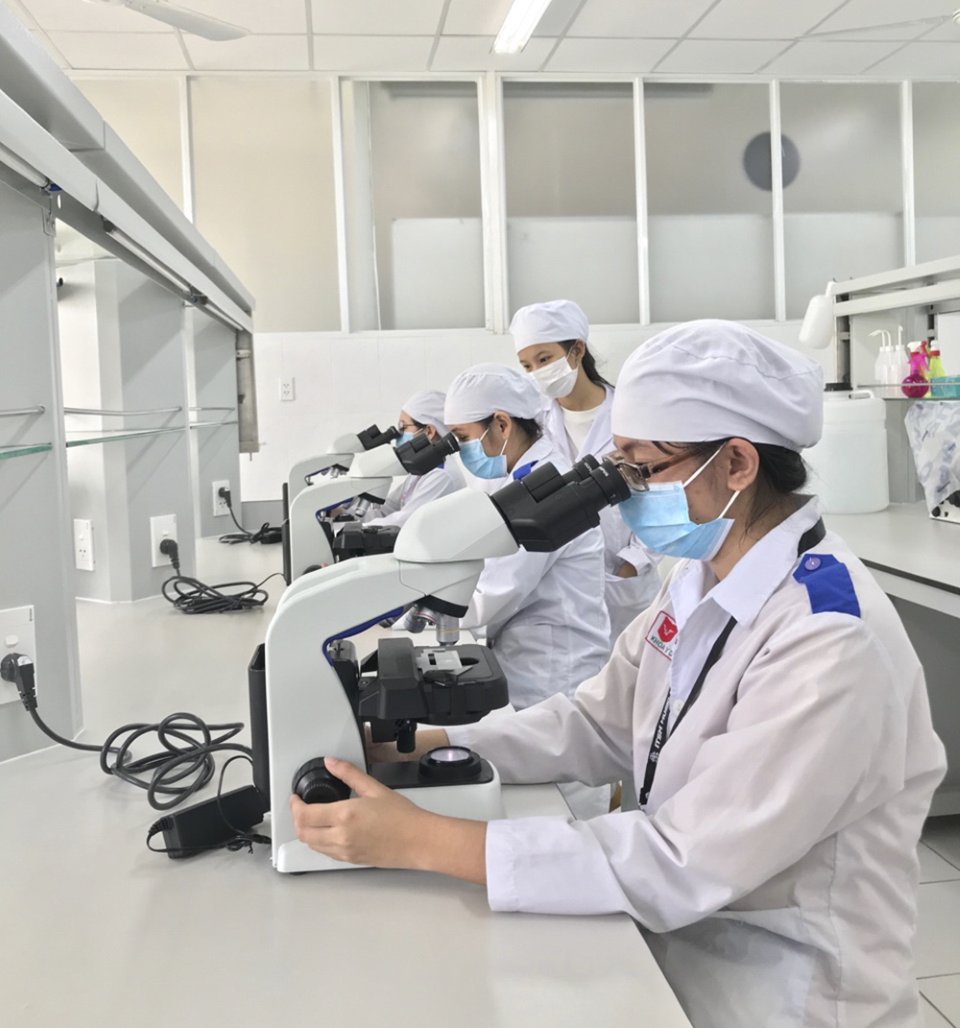General Introduction to Medical Laboratory Techniques at College Level
Circular 54/2018/TT-BLDTBXH stipulates the minimum volume of knowledge and the competency requirements that learners must achieve upon graduation from intermediate-level and college-level programs in the fields of health and social services, effective from February 10, 2019.

General Introduction to Medical Testing Techniques at College Level - Illustrative Image
As specified in the Regulation on the minimum knowledge volume and competency requirements that learners must achieve upon graduation at intermediate and college levels in the field of medical testing techniques, issued together with Circular 54/2018/TT-BLDTBXH, medical testing techniques at the college level is a field that utilizes modern methods, machinery, and equipment to analyze specimens such as blood, urine, fluids, etc., in order to discover and provide evidence assisting doctors in accurately diagnosing the health conditions of users of testing services, meeting the requirements of Level 5 in the Vietnam National Qualification Framework.
Testing work includes: greeting, collecting or receiving specimens, preparing chemicals, reagents, preparing tools, machinery, performing testing techniques, reviewing, analyzing, preserving, and delivering results. The work in this field is mainly performed in laboratories of medical facilities, testing centers, from central to local levels, training institutions specializing in health, agencies/organizations involved in testing activities, CDC centers, etc.
Working conditions often involve close contact with users of testing services, including patients, patient relatives, medical officers, and staff; exposure to chemicals, medical biological products, specimens, and highly precise machinery, requiring medical testing technicians to possess solid professional knowledge, good communication skills, ability to cope with work pressure, meticulousness, caution, honesty, accuracy, and a strong sense of professional ethics and legal compliance. The end product is the testing result, which must be delivered promptly, accurately, and safely.
A college-level medical testing technician has knowledge of basic sciences, basic medical knowledge, and specialized knowledge and skills to perform testing techniques and make, analyze the results of basic tests in the following areas: Microbiology-Parasitology; Biochemistry, Immunology; Blood Transfusion Hematology; Pathological Anatomy and Cytology. They must possess good health, good moral qualities, effective communication skills, a high sense of responsibility, a meticulous and accurate demeanor; the ability to self-study, update, and enhance knowledge and skills to meet the demands of public health care and protection.
Note that the minimum volume of knowledge for a college-level technical testing student is 2,345 hours (equivalent to 90 credits).
Details can be found in Circular 54/2018/TT-BLDTBXH, issued on December 28, 2018.
Le Vy
- Responsibilities of officials of the Ministry of Finance of Vietnam when they are issued Official Passports from November 19, 2024
- 06 solutions to enhance the effectiveness of social policy credit in the new phase in Vietnam
- Financial support level for the purchase and repair of transportation vehicles for the Economic - National Defense Corps in Vietnam from December 30, 2024
- Financial support levels for purchasing and repairing of medical equipment for the Economic - National Defense Corps in Vietnam from December 30, 2024
- Latest regulations on management and use of passports for officials and public employees of the Ministry of Finance of Vietnam
- New regulations on the procedures for veterinary sanitation inspection in Vietnam from January 6, 2025
-

- Responsibilities of officials of the Ministry ...
- 16:00, 23/11/2024
-

- 06 solutions to enhance the effectiveness of social ...
- 15:32, 23/11/2024
-

- Guidelines for registration and organization of ...
- 11:53, 23/11/2024
-

- Contents of audit service quality control in Vietnam
- 11:00, 23/11/2024
-

- Acts in violation of Law on Independent Audit ...
- 10:30, 23/11/2024
 Article table of contents
Article table of contents
